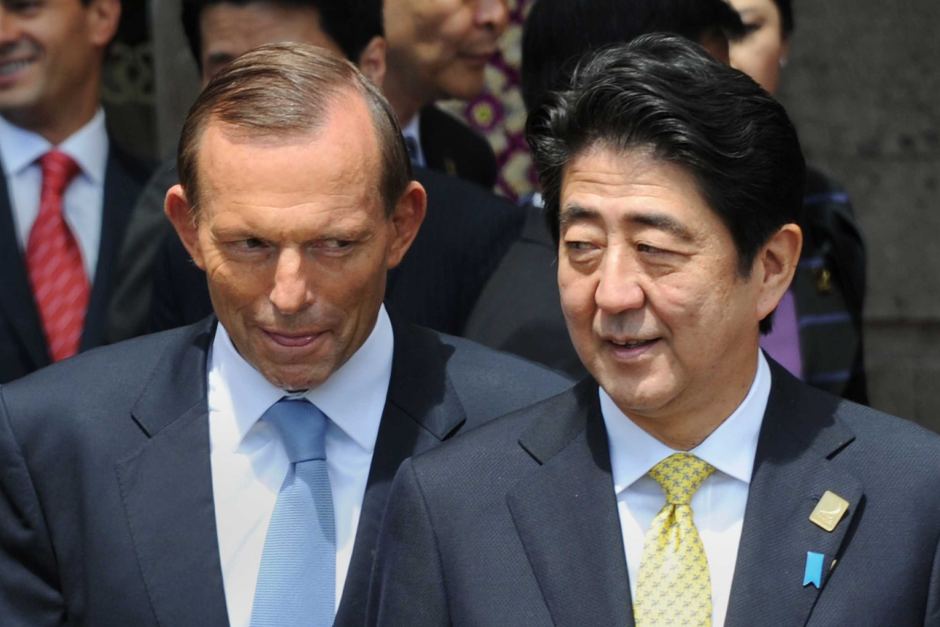Tony Abbott’s North Asian tour today takes him to China. He should expect a frosty reception after broadcasting that the US-Japanese alliance is more important, writes Tim Robertson from Beijing.
Prime Minister Tony Abbott’s tour of North Asia has been billed as a trip to strengthen trade between Australia’s first, second and fourth largest trading partners: China, Japan and South Korea.
The first significant announcement from the trip, a free trade agreement with Japan, is in line with both governments’ objectives. The agreement, announced at a press conference in Tokyo on Monday, is the culmination of seven years of bilateral negotiations.
According to the government, the Australian beef industry is the big winner from the agreement, with tariffs being cut from 38.5 per cent to 19.5 per cent (for frozen meat) and to 23.5 per cent (for fresh meat).
Tony Abbott addressed the Japanese Chamber of Commerce and Industry in Tokyo on Monday and his message was clear: “trade builds trust.” But he also acknowledged that trade is not enough on its own:
“I am here in North Asia early in the term of a new government to boost trade, certainly; but, above all, to build friendships. Friends, after all, don’t visit each other because they need to but because the want to.”
Friendships between nations in the region have historically been fraught. China and South Korea still harbour resentment towards Japan for the crimes committed during the Second World War. South Korean President Park Geun-hye had long refused to meet with her Japanese counterpart, Prime Minister Shinzo Abe, until he took steps to address the lingering tensions between the two nations over Japan’s wartime atrocities.
The dispute over the Diaoyu/Senkaku Islands in the East China Sea is currently the cause of tension between China and Japan, eliciting nationalist responses from both countries. In China, the Communist Party’s (CCP) rule is tied up with this popular nationalism. They, so the propaganda goes, are the ones that expelled the Japanese imperialists from the country. It’s one of the things that gives the CCP its legitimacy.
These are the competing hostilities that Abbott has to juggle. But instead of treading lightly, he seems intent on reasserting his commitment to the US alliance, and to the United States’ closest ally in the region, Japan. The new Coalition government hasn’t got off to a great start in fostering its relationship with China. Late last year the Chinese foreign ministry rebuked Foreign Minister Julie Bishop for her intervening in the East China Sea dispute.
Australia’s efforts in the search for the missing Malaysian Airlines Flight MH370 – whose passengers were mostly Chinese nationals – will likely win praise and thanks from the CCP. Whether this will be enough to stifle any significant disagreements between the two countries remains to be seen.
Abbott’s speech in Tokyo on Monday also lauded “Japan’s emergence from war to become a liberal democracy and a model international citizen”. South Korea was celebrated as “a beacon of democratic prosperity”. China, on the other hand, was described in less hyperbolic terms as “one of the world’s leading nations”.
He also pointed to a desire to strengthen ties with Japan over “shared values” – a not-so-subtle reference to China’s one-party rule. “Through shared endeavours and through shared experiences comes the realisation that there are shared values too,” Abbott said.
It’s no secret that Beijing loathes being lectured on democracy. It’s a dangerous line for Abbott to take before his arrival. It’s one he’s taken before, after Bishop rebuked China for its imposition of a no-fly zone in late 2013:
“I think it’s important for Australia to stand up for its values

